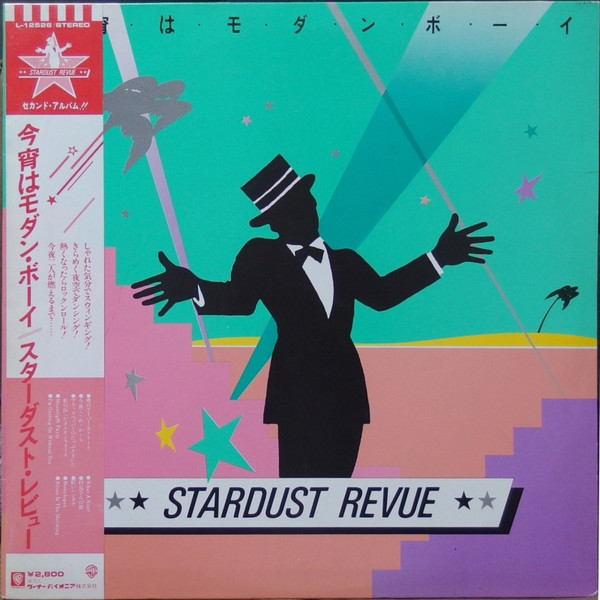Hideki Saijo was one of the most prolific idols and music artists of the 70s & '80s. He would gain a following that would last generations with more people becoming fans of his work to this day, even after his passing in 2018. Saijo left such an impact on the Japanese music industry and popular culture that only the fan's testimonies can truly do it justice. Thanks again to the Hideki fans who shared their experience with me for this week's article and to the ones who waited patiently for me to post this. There may be a follow-up in the future, but in the meantime, You're welcome to share your Hideki experiences in the comments below.
"将来的にフォローアップが行われる可能性がありますが、それまでの間、下のコメントで秀樹の経験を共有することを歓迎します。"
How did you discover Hideki Saijo?
@lbintang_jp: When I was 2 or 3 years old, my mother and sisters watched music programs on TV every day. In the 1970s - 80s Japanese TV programs, we were watching many singers every day including Hideki Saijo.
@25152hs: In the 1970s, there were many TV programs that featured live music and I got to know Hideki. When I heard his song "Chigireta Ai (Torn Love)" in 1973, I was completely fascinated by him.
@mori99saki: In August 1977, two weeks after graduating from college, I moved to Osaka Japan to teach Conversational English at a Japanese Church. I didn’t know any Japanese except, Sayonara and Tokyo. My roommate was a Japanese High School Student and thought watching the Japanese Music programs would help me learn Japanese. I saw Hideki on the very first program that I watched. I was mesmerized by his charisma on stage and his voice. From that first day, he became my “idol crush” and has been ever since.
What kind of impact has Hideki Saijo's music had on your life?
@aono109: His songs evoke a wide range of emotions in me, love, fun, joy, sadness, loneliness, etc. He covered a lot of foreign pop songs and taught me a lot of good music and many of them became my favorite ones. And then he passed away. That still makes me brokenhearted.
@lbintang_jp: His music, songs, and his vocal was my starting point.
@25152hs: During my teenage years, I had been a big fan of Hideki and he was always in my life. In 2018 I heard of his tragic death and the news took me all the way back to the years. I'm usually not very active and don't like to go out. But when it comes to Hideki, I can be an active person. He is just like my driving force and he motivates me. When I lost my relatives and became ill, he and his songs really provided moral support to me.
@mori99saki: I don’t believe it's only Hideki’s music that has impacted my life, but his way of life and how he approached everything with positivity has had the greatest impact. When I’m having a hard day I listen to Hideki’s music and think about how Hideki would have approached the situation.
What’s your favorite memory associated with Hideki?
@lbintang_jp: I cannot forget his innocent smile on the Japanese curry CM. I thought he was our brother and a big star in another world for his correct pitch, groove, athletic ability, caring personality, and handsome!
@25152hs: When "Hop Step Jump" became a hit in 1979, I had opportunities to dance behind Hideki. At that time I was a member of his fan club and sometimes I went to TV stations with the other members to dance. It was a lot of fun to be able to see Hideki up close.
My roommate’s parents bought us tickets to a Hideki Saijo for my birthday in 1978. Seeing him live on stage was much more impactful than watching on TV. His energy as well as that of fans was electrifying. It’s a memory I will never forget.
Favorite Songs & Albums?
@aono109: Hideki worked with Fujimaru Yoshino for the first time in Koi No Bousou. You can see he performed very happily with Fujimaru in this video. Since I've become an adult, I used to listen to "TWILIGHT MADE..." while driving around.
@lbintang_jp: BoomerangStreet & WakakiShishitachi (Young Lions). Most Favorite album is First Flight.
@25152hs: My favorite albums are "Wakaki Shishi Tachi (The Young Lions)" and "Valentine's Day Concert". My favorite songs are "Wakaki Shishi Tachi" and "Kono Ai no Tokimeki(This Crush of Love)" I also recently fell in love with "Once Again" from the album "33 Years Old".
@mori99saki: I returned to the US in the early 1980s essentially leaving Hideki and his career behind. I have only begun to discover his music from the late ’80s to the 2000s so I have no favorite at this time.
What would you tell people who want to listen to Hideki’s music?
@aono109: First, close your eyes and listen to his velvety smooth singing voice. Then open your eyes and watch him sing on stage that's like a great musical and will capture your heart.
@lbintang_jp: His music range is very wide and deep beyond language. Rock, Musical (including Japanese Kayokyoku), City pop, mood music, and so on. Please start listening to Hideki from your favorite type.
@mori99saki: Hideki’s music transcends language barriers. Close your eyes and listen with your heart. The depth of emotions that come through his voice will take you to a whole different realm even if you don’t understand the words.














